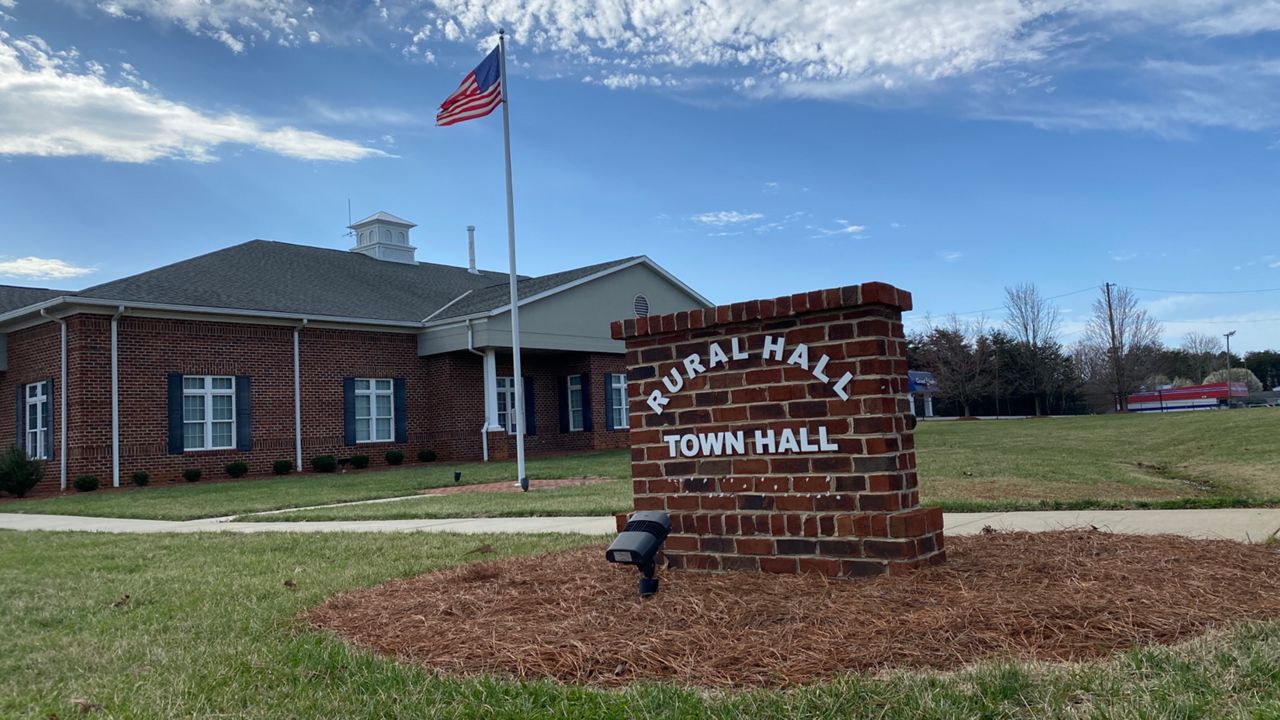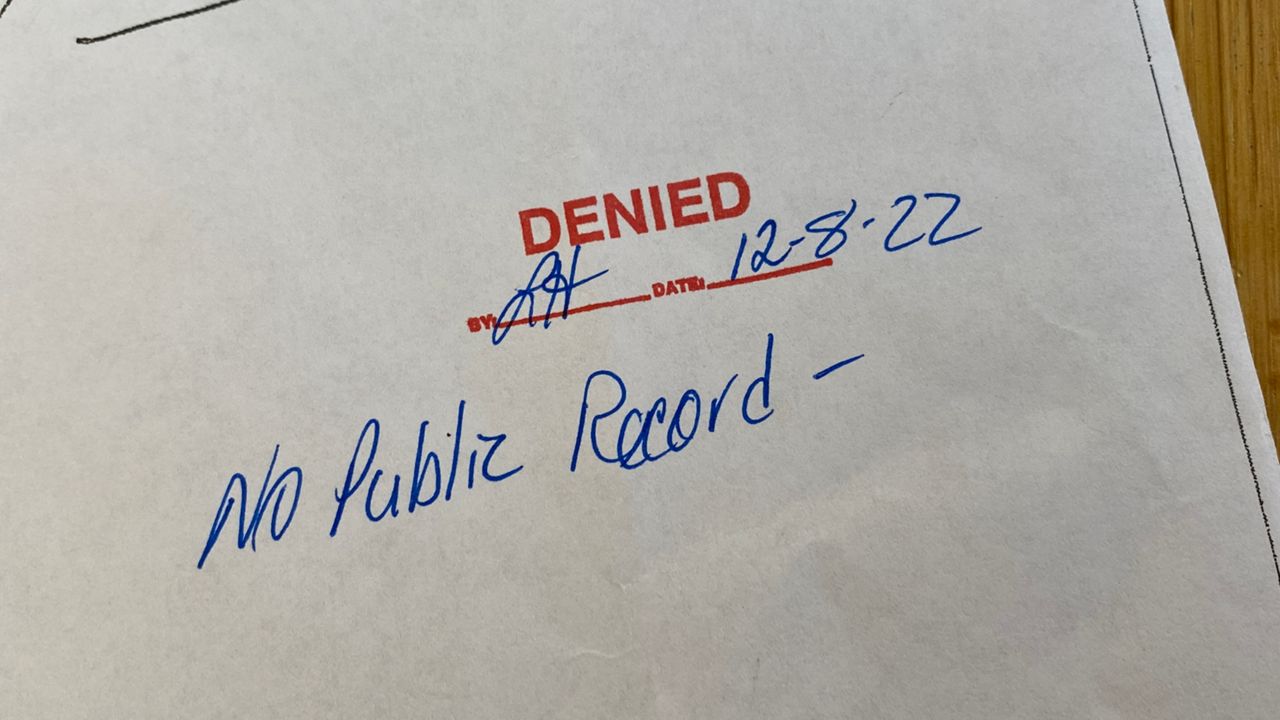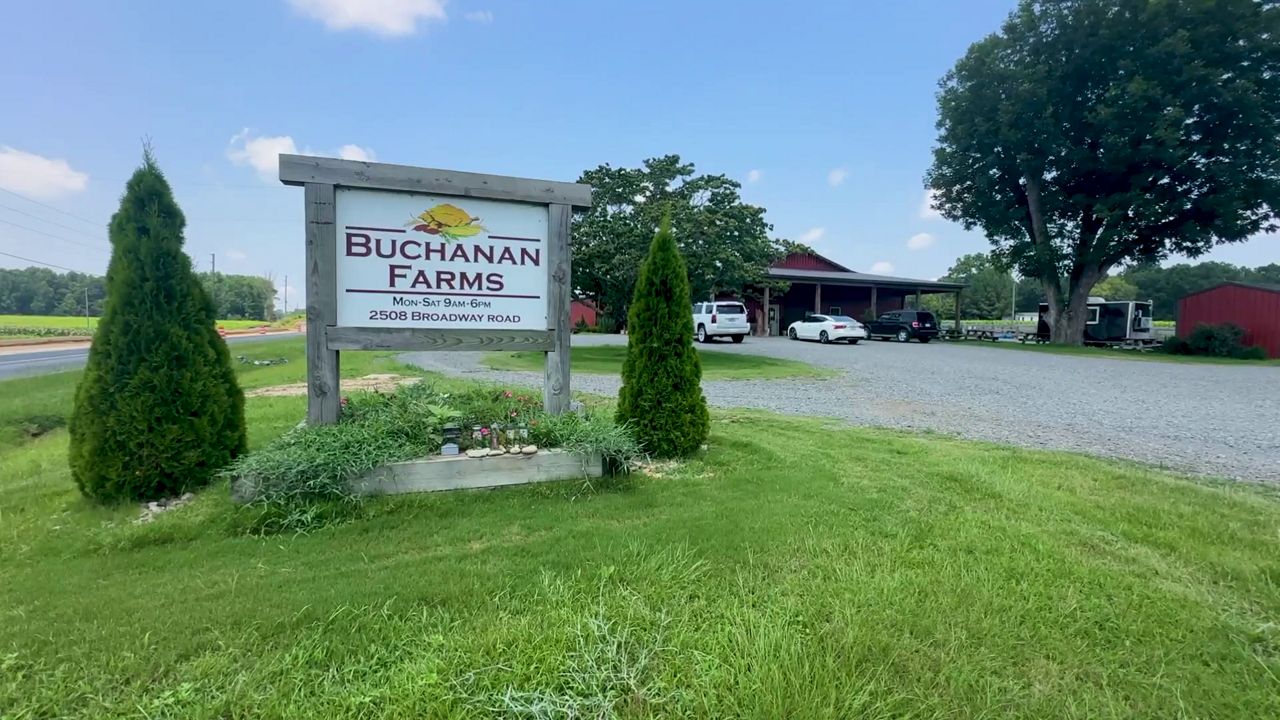RURAL HALL, N.C. — Unfounded accusations of missing money, rumors of improper affairs, dueling lawsuits, mass resignations from the town council and government, and the recent state auditor’s report have roiled Rural Hall, a small town of 3,400 just outside Winston-Salem.
The Town of Rural Hall violated public records and open meetings laws, according to a new report from the North Carolina Office of the State Auditor. The report also found town leaders improperly hired a new interim town attorney and a new town clerk.
The new report from State Auditor Beth Wood took aim at the interim town attorney, Randolph James, stating, “The Town did not produce public records when requested by members of the public due to the Interim Town Attorney’s disregard for the North Carolina public records law.”
“The Town Council should ensure that its Town Attorney is knowledgeable in legal matters relating to local government,” the report states.
“The State Auditor’s investigation determined that there are no missing or misspent funds but did identify some areas where they felt the Town could improve in its governance and financial processes,” interim town manager Ron Niland said in a statement to Spectrum News 1.
“The Town Council has appointed interim leadership that is working to address all concerns identified, and we are committed to being transparent with the public in sharing these findings with you, and also letting you know how we intend to address each of the areas identified in the Auditor’s report,” Niland said.
In his response to the audit, included with the report, James disagreed with many of the findings.
“The Town of Rural Hall made some mistakes; however, none were intentional and have been remedied by the adoption of new procedures and strict adherence to North Carolina General Statutes where clearly defined,” he wrote.
James disputed many of the findings in the audit, in one section saying Office of the State Auditor investigators used a “false premise” in some of their conclusions and attempted to explain some of the denied public records requests.
The state auditor accused James of being misleading and making untrue statements in his response.
“The Town Council should ensure that its Town Attorney is knowledgeable in legal matters relating to local government, including the Council-Manager form of government,” the audit said.“The Town Council should ensure that its Town Attorney is knowledgeable in legal matters relating to local government, including the Council-Manager form of government,” the audit said.
It has been a rough year and a half for Rural Hall’s town government. A dispute with the city manager in 2021 led the manager to quit. The manager, three of the five town council members, along with the town attorney, who had been with the city for 45 years, and the town clerk of 28 years, all resigned on the same day in October that year.
Court filings in lawsuits filed since then show the town manager at the time, Megan Garner, was accused of taking $1.5 million from the city.
Those accusations were unfounded. She was also accused of having an improper relationship with the town’s fire chief.
Garner, who is now city manager for Graham, North Carolina, sued Rural Hall’s Mayor Pro Tem Susan Gordon for defamation over those claims. That lawsuit is still pending.

There were also dueling legal claims over a $150,000 settlement agreement signed when Garner resigned from Rural Hall. A Forsyth County judge sided with the town in that case in October 2022, finding the agreement was not legal.
Garner declined to comment on her time with Rural Hall.
Court records show the town had to budget an extra $145,000 for legal fees in April 2022. Since October 2021, the town has paid James more than $244,000 in legal fees, according to billing records provided by the town.
Born and raised in Rural Hall, Carol Newsome has become more involved in city government in recent years, attending town council meetings, filing public records requests and working with others in the small town to keep an eye on their government.
But after the mass resignations in late 2021, things started to change. She couldn’t just go and talk to the town clerk to get public records anymore. Requests had to go through the attorney, and he refused a number of her requests and others. The city even bought a stamp with the word “DENIED” to stamp on public records requests in red ink, she said.
“Finally, after over 15 months of fighting this, maybe we’re getting somewhere,” Newsome said“Finally, after over 15 months of fighting this, maybe we’re getting somewhere,” Newsome said in an interview after the state audit came out.
Newsome isn’t mentioned by name in the audit, but some of her public records requests are.
“Several of the requests made, including a request for employment records, a request for a letter from the former Town Manager to the Mayor, and the former Town Manager’s employment contract, were made by the same person,” the audit states.
“The interim Town Attorney wrote in a letter to the person making the request that he denied the requests because the requester ‘demonstrated malice towards Rural Hall,’” according to the audit.
Auditors wrote that when the town attorney denied those requests, he was “in direct conflict with the North Carolina public records law.”
“The Town Council should ensure that the Town Attorney is knowledgeable in legal matters relating to local government, including the North Carolina public records law,” according to the audit.
In his response to the audit, the town attorney refuted each claim from auditors about public records requests that were illegally denied. But the state auditor said many of James’ reasons for denying requests were misleading or untrue.
The audit cited the town council and the town attorney for violating the state’s open meetings law repeatedly since January 2021. Town and city councils are allowed to go into closed session for specific topics like legal issues and discussions about personnel, but they have to give a public reason for meeting behind closed doors.
From January 2021 to July 2022, the town council met 43 times and went into closed session 24 times, the audit said. In 20 of those closed sessions, the town council did not cite all the necessary information to meet in private.
The town did not give the state investigators minutes from the closed session meetings, so auditors could not know what the town council members were talking about.
The audit does detail six closed session meetings where council members talked about issues that should have been debated in public. Those issues include the cost for the new interim town attorney, staffing needs at town hall, and getting bids for lettering on the fire chief’s vehicle.
Decisions made in closed session that should have been done in public could be null and void, according to the state auditor.
“The interim Town Attorney did not provide guidance to the Town Council regarding how to properly enter a closed session or what they should not discuss in closed session,” the audit states. “The interim Town Attorney told investigators that he served at the pleasure of the Town council and it would be ‘awkward’ if he ‘fusses at them’ about discussing things in closed session that should be in open session.”
James once again disputed the audit findings.
“This entire section has a false premise by the Investigators who were not provided with any closed session minutes in which attorney client privileges information occurred,” James states in his response.
He said the report covers an “unprecedented period in the Town of Rural Hall’s history.”
“Your findings fail to acknowledge the difficulties encountered by Interim Town Attorney and the Town of Rural Hall’s Town Manager, Town Clerk and the Council during this difficult period of time,” James wrote in his response.“Your findings fail to acknowledge the difficulties encountered by Interim Town Attorney and the Town of Rural Hall’s Town Manager, Town Clerk and the Council during this difficult period of time,” James wrote in his response.
The report faults the town for not pre-auditing the town’s contract with James, the interim town attorney who still works in private practice. The lawyer’s contract with the town, included as an exhibit in a lawsuit, shows James would bill the city at $300 an hour.
In his response, James said the state auditor’s office misunderstood state law because his legal agreement did not require any prepayment. But the auditor disputes that.
When a legal commitment was made, there was an expectation that at least some money would be paid in the current fiscal year. Therefore, a preaudit was required,” according to the report. That same year, the town ended up paying James more than $147,000, auditors said. The town had only budgeted $10,000.
The audit report also criticized the town for now reconciling its bank accounts and violating state law when it hired a new town clerk.
The new Rural Hall town clerk was hired by the town council, but state law says the clerk could only be hired by the town manager.
“The interim Town Attorney did not agree that State law does not allow for anyone other than a Town Manager to appoint and suspend or remove Town officers and employees not elected by the people,” the audit states.
James disputed many of the findings in the report.
Asked about the findings Monday, in an email James said, “The state auditor and her investigators are CPA’s, not attorneys, and are confused about the interpretation and application of North Carolina law.”
For Newsome, as a private citizen trying to keep an eye on town government, she said the audit report felt like some vindication for the frustration she’s felt dealing with the town over the past year-plus. But she’s not sure if the report will fix the problems in town hall.
On Monday, Spectrum News 1 submitted a public records request to the town clerk for invoices the interim town attorney has sent to Rural Hall.
Six minutes after that email, the town attorney wrote back: “My invoices are protected by attorney client privilege and will not be produced in response to your public records request.”
After some back and forth, the town did provide payment records, showing the town has paid more than $244,000 to James between October 2021 and November 2022.
But James, citing attorney-client privilege, continues to refuse to provide the invoices showing what the work was for.






_Cropped)


